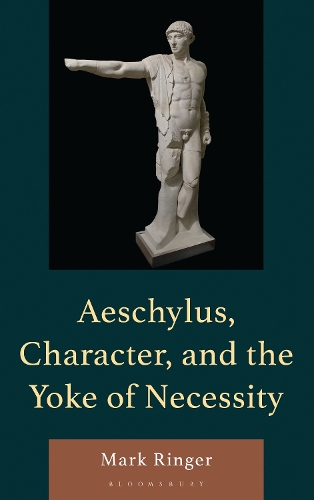
Aeschylus, Character, and the Yoke of Necessity
(Hardback)
Publishing Details
Aeschylus, Character, and the Yoke of Necessity
By (Author) Mark Ringer
Bloomsbury Publishing PLC
Rowman & Littlefield Publishers
13th November 2025
United States
Classifications
Tertiary Education
Non Fiction
Ancient Greek and Roman philosophy
Literary studies: ancient, classical and medieval
Physical Properties
Hardback
224
Width 152mm, Height 152mm
Description
Aeschylus, Character, and the Yoke of Necessity considers the works of Aeschylus in the context of the playwrights handling of dramatic character and the conflict between freedom and compulsion. Aeschylus was an Athenian citizen during the first generation of that poliss democratic system. As such, he and his contemporaries were encountering a kind of free agency unknown before in history. Aeschylus presents the archetype of the tragedy of character that will resonate throughout world literature. It is a fascinating and essential component to the conception of his drama that his protagonists each of the six plays find ways of escaping freedom in exchange for a self-imposed spiritual bondage. They slip [their] necks into the yoke of necessity, to borrow a pivotal line from the Agamemnon. Caught between their individual motives and the unavoidable necessity of their situation, each protagonist handles this conflict in a way that defines the specificity of their character and results in the development of the plot. This book also explores the frequently dominant position of the Aeschylean chorus.
Reviews
This masterly study by Mark Ringer demonstrates that Aeschylus is a subtle and audacious portrayer of the human subject. By analysing his six unquestionably authentic plays in chronological order, Ringer exposes the poets growing mastery of characterisation, both in his individual protagonists and in the collective chorus. The chorus emerges as a living ensemble rather than a mere literary convention. Tragic compulsions, exemplified by Agamemnons self-imposed yoke of necessity, are laid bare. Far from shying away from character analysis, Ringers judicious character criticism illuminates how psychological transformation and moral conflict fuel dramas most electrifying moments. His incisive reading culminates in the Oresteia, demonstrating how Aeschylus crafts emotionally resonant theatre. I find Ringers book both compelling and indispensable, an essential reading for scholars and students across the globe. * Andreas Markantonatos, University of the Peloponnese, Greece *
